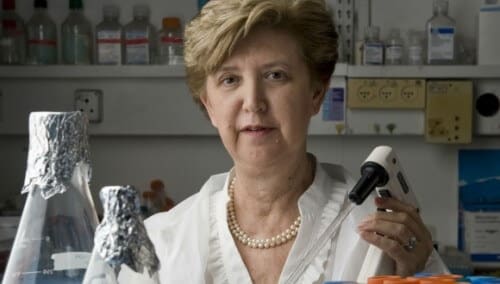An experimental drug developed in a laboratory may be suitable for the treatment of a variety of rare syndromes that impair brain function

Researchers at Tel Aviv University, led by Prof. Ilana Gozes from the department of human molecular genetics and biochemistry At the School of Medicine and the Sagol School of Neuroscience, they discovered a mechanism shared by mutations in the ADNP and SHANK3 genes, which cause, among other things, autism and schizophrenia... In addition, the researchers found that an experimental drug previously developed in Prof. Guzes' laboratory is effective in an animal model with mutations in these genes and may be suitable for the treatment of a variety of rare syndromes that affect in brain function.
According to the researchers, the encouraging findings may lead to effective treatment of a variety of rare syndromes that impair brain function, causing, among others, autism, schizophrenia, and neurodegenerative diseases such as Alzheimer's disease. The article was published in the prestigious journal Molecular Psychiatry.
Participants in the study: Dr. Yanina Ivshko-Fahima, Maram Ganaim, Inbar Ben-Hurin-Hezek, Alexandra Lubinseva, Naomi Bleicha, Inbar Fisher, Gilad Levi, Dr. Shlomo Sergovich, Dr. Gideon Carmon, and Dr. Rabbi Eliezer Giladi from the School of Medicine and the Segol School of Neurosciences at Tel Aviv University, Dr. Boaz Barak from the School of Psychological Sciences and the Segol School of Neurosciences at Tel Aviv University, and Dr. Shula Shatzman from the Department of Mathematics and Computer Science at the Open University.
Prof. Gozes: "Autism is caused in some cases by mutations in different genes. Currently, more than 100 genetic syndromes related to autism are known, of which about 10 are considered relatively common. In our laboratory we mainly study one of them, the ADNP syndrome - which is caused by a mutation in the ADNP gene, which disrupts the function of the ADNP protein and damages the skeletal structure of the nerve cells in the brain. In the current study, we identified a mechanism of damage to the structure of the cellular skeleton that is common to this mutation, and to a mutation in another well-known gene related to autism and schizophrenia, called SHANK3. It is estimated that the two genes are responsible for thousands of cases of autism worldwide."
In the first phase of the study, the researchers took cells from patients with ADNP syndrome. They found that when the ADNP protein is damaged, nerve cells are formed with damage to the skeletal structure, which disrupts the function of the brain. However, they discovered that there are different types of mutations in ADNP, and in some the damage is less.
Prof. Guzes explains: "We found that certain mutations add to the ADNP protein a segment that protects it and reduces the damage through a link to a control site of the cytoskeleton system. Among other things, it is known that this control site also exists in SHANK3 - an important protein that has been extensively studied, and its mutations are associated with autism and schizophrenia. We concluded that the ability to bind to SHANK3 and similar proteins provides some protection against the damage of the mutation."
In the next step, the researchers found additional sites on the surface of the ADNP protein that can bind to the SHANK3 protein and similar proteins. One of these sites was located in the NAP segment, which is used as an experimental drug (under the name Davunetide) that was also developed in the laboratory of Prof. Guzes.
Furthermore, the researchers showed that long-term treatment with the experimental drug resulted in a positive improvement in the behavior of the model animals with autism caused by a mutation in SHANK3.
Prof. Guzes: "In previous studies we showed that the drug is useful in the case of ADNP syndrome. Following the new study, we believe that the drug may be useful in the case of Phelan McDermid syndrome in which 3SHANK is mutated and also in other syndromes that cause autism in the common mechanism."
The experimental drug Davunetide has been granted orphan drug status by the FDA for the future treatment of the rare developmental syndrome ADNP. The drug is protected by a variety of patents at the Ramot company near Tel Aviv University. In collaboration with Professor Gozes as the main researcher and business entrepreneurs, the company Atid - ATED - Therapeutics was established to develop Devontide for rare autistic syndromes on the one hand and other common brain diseases on the other hand.
More of the topic in Hayadan:
- Towards a blood test to detect Alzheimer's
- An existing drug will be substituted for the treatment of an orphan disease
- Researchers at Tel Aviv University: many genetic mutations that characterize autism and intellectual disability also appear in the brains of Alzheimer's patients
- An experimental Alzheimer's drug may help children with autism
- Researchers have developed a treatment that may prevent developmental delay and autism
